I interviewed award-winning playwright and screenwriter José Rivera in June while he was participating in the Writers Guild of America strike. Rivera has two plays running in the Washington area this summer, Sonnets for an Old Century at Spooky Action Theater in DC (through June 25) and the world premiere of Your Name Means Dream at the Contemporary American Theater Festival in Shepherdstown, West Virginia (July 7–29). In Sonnets, characters in the afterlife share important, sometimes secretive, stories about their lives; Your Name Means Dream charts the relationship between an aging woman and her caregiver, an AI entity in search of a soul. (This interview has been edited for length and clarity.)
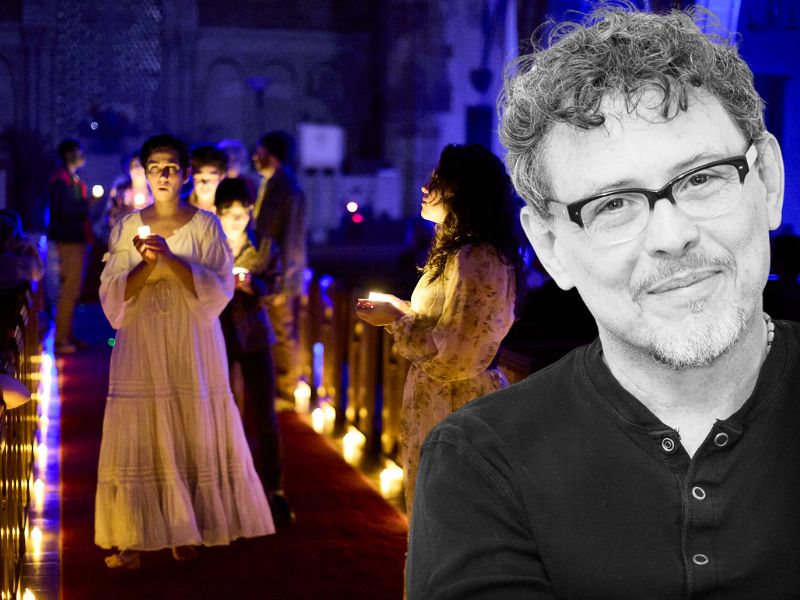
Deryl Davis: You have two plays running this summer in the greater Washington area, Sonnets for an Old Century and Your Name Means Dream. Both deal with large, existential themes — death, afterlife, what it means to be human. Where do these concerns come from for you?
José Rivera: Aren’t those everybody’s concerns? You know, life, death, the meaning of things? Those are the subjects theater’s supposed to explore. I might be a little obsessed with them, but they’re the questions everybody asks. In Your Name Means Dream I’m asking questions about the idea of the soul. What is it? Is it the thing that makes us who we are? Do only humans have it? Buddhists would probably say, “There’s a soul in that rock, a soul in that tree. There is a living essence that animates those things.” I’m not going to argue with that. But I do think there is something that makes this difference in us, that animates us.
You’re specifically dealing with souls in Sonnets for an Old Century, with people who speak to us from the afterlife. I wondered if Dante and his Divine Comedy were somewhere in the background — the souls of dead people telling stories they could not tell on earth.
Yeah, it’s funny, because I did write a play a few years ago that was greatly inspired by Dante, in which a person does go to the afterlife to deliver a message and then encounters all these sinners along the way. Yeah, I think, you know there are certain foundational authors that I go back to, whether it’s consciously or unconsciously. Dante would be one. Milton would be another. Lorca would be another. And also Gabriel García Márquez would be another. All of these writers, you know, along with their amazing verbal dexterity, are tackling the biggest themes that exist. And as I said, I think that’s the proper domain of the theater, to examine those huge, huge themes.
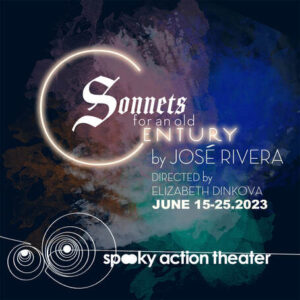
Well, I should tell you that Sonnets was inspired by [Edgar Lee Masters’] Spoon River Anthology, which is obviously a book of poems. But it’s also a stage play. I’d seen it on stage, and I remember, when I saw it, I thought, “You know, I’d like to do something like that.” So Sonnets is very much beholden to Spoon River. It’s almost the same thing, dead people talking. About the title, I wrote [Sonnets] in 1999 originally, so we were on the cusp of a new century, and I didn’t want to call it “Sonnets for a New Century,” because I had no idea what the new century was going to be like. And I wanted to write a play that sort of examined where we were in the 1990s as a people. What are our obsessions, and what do we dream about? What makes us laugh? And so on. I think the idea of a sonnet is kind of beautiful. I think the word itself is a beautiful word. So, yeah, it just felt like each individual monologue in the play was a kind of sonnet. And then it was, you know, in a way, to praise or examine the century that’s just ending.
Was Sonnets written to be an immersive piece, moving the audience from room to room to encounter the characters as it is performed in the current production directed by Elizabeth Dinkova at Spooky Action Theater?
No, it was written just for standard proscenium theater. The world premiere was done at a little theater in Hollywood with like 30 actors. It’s also been done in the round. I haven’t seen that, but I’ve seen pictures of the play done in the round, the audience on all sides. But I don’t know for a fact whether anyone else has done it like this [in an immersive form, as at Spooky Action Theater].
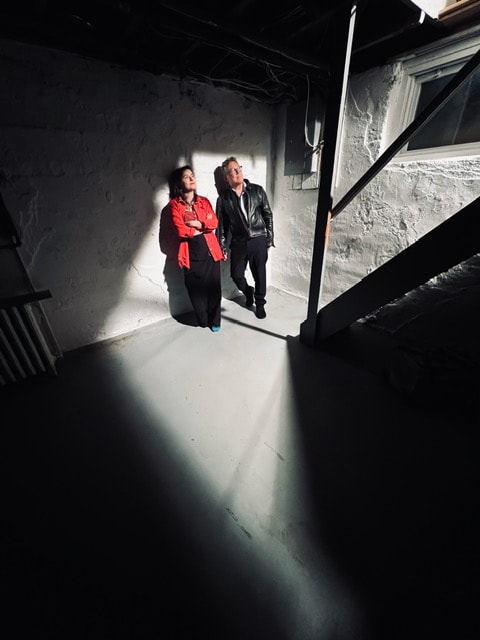
Do you think there’s an advantage to staging Sonnets as an immersive theater piece?
Oh, absolutely. Because I think what it does is it creates a sense of intimacy. So you enter a room, and there is a person, and they’re doing their speech, and I think it creates more of a one-on-one relationship. A more intimate experience for the audience members.
You’ve written both stage plays and screenplays and been nominated for an Academy Award for your adapted screenplay of The Motorcycle Diaries [a 2004 movie based on events in the life of Marxist revolutionary Che Guevara]. I’m curious to know how you approach the different forms of dramatic writing. Obviously, there are fundamental differences. Film is said to be more visual, theater more verbal.
Yeah, they’re different. I think I’ve evolved a lot as a screenwriter. I didn’t think much of it in the beginning. I was a typical playwriting snob about screenwriting, and I did it when I did it simply to make money. I didn’t care what I wrote. I remember I wrote something for Michelle Pfeiffer, and I mean, it just didn’t matter to me what the content was as long as I was getting paid. And I didn’t have much respect for the craft. But I have to say, as time went by, and I started to become better at it, I gained much more respect for how difficult it is and how much you can do as a screenwriter that you can’t do on stage. How you can marshal all the elements of filmmaking, you know, sound and camera movements and special effects. So many amazing tools are available to the screenwriter. So looking at it now, I have enormous respect for good screenwriting. I know how difficult it is, and I take it as seriously as my playwriting, which I didn’t early on.
But you’re right, what you said earlier. Film is such a visual medium. When I teach writing, I tell students, “You write plays with your ears, and you write film with your eyes.” And that’s the fundamental difference for me.
Have you ever directed a film?
I’ve had aspirations to direct my own films, but the problem I always come up with is I’m a terrible fundraiser. Like, I can’t raise a penny. So I’m always on the lookout for somebody, a producer who is good at that, you know, because the films that I want to direct and that I’ve written are relatively low budget.
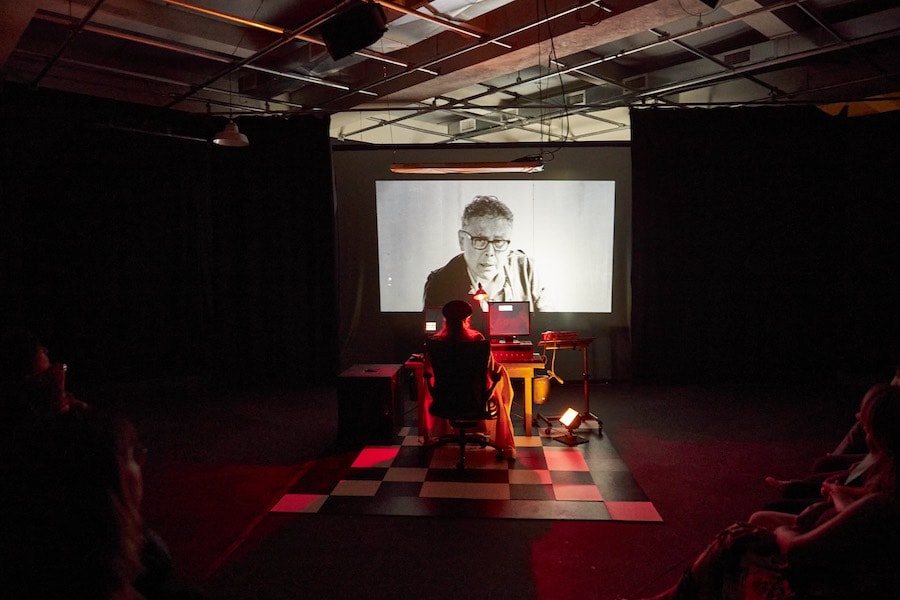
If I may ask a more personal question, how does your identity as a Puerto Rican influence your work? Or has it influenced your work? Does it play any role in the two plays we’ve been talking about?
Yeah, my identity is, overall, strongly represented in my work. But sometimes not so [obvious]. Like “Oh, that play’s not set in Puerto Rico” or “It doesn’t have that [Puerto Rican] quality.” There is something in the Puerto Rican culture that is very vibrant, you know, full of a kind of raunchy humor. Some of the books by leading Puerto Rican authors like [Piri Thomas’] Down These Mean Streets are full of dark comedy, and I like that. I’ve employed that in my theater. A lot of characters in my work are Puerto Rican or Latinx. With Sonnets, it’s written to be done with a broad, diverse group of people. There are gay characters, there are Black characters, there are Asian characters and Latinx characters and white characters. I have a new play in the works now that has 12 characters, of which five are Latinx. So, almost all my work has a very heavy Latin representation in terms of the cast, and a lot of my work deals with, you know, themes like assimilation and immigration and poverty and the high representation of Latins in the military, you know. So these are themes that I go back to constantly.
It’s interesting that my Latin roots are more visible in my films. For instance, The Motorcycle Diaries. As you mentioned, I wrote a film called The 33, which is about the Chilean miners who were trapped underground for 77 days [in 2010]. I just wrote a film right before the [writers’] strike started called The Takeover, which is about the Puerto Rican political group, the Young Lords, who took over a hospital in 1970 [in the South Bronx], and that entire cast is people of color, except for like one or two characters. So, yeah, I think my culture is complicated, and there’s so much to write about that it sort of creates an unending source of inspiration for me.
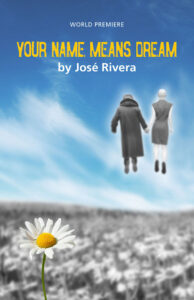
Well, I would say that Your Name Means Dream is science fiction, except that AI [artificial intelligence] has become such a big thing in life. I could almost say it’s a documentary. It’s not science fiction, but it started off as science fiction. It’s definitely in the world of magic realism and, you know, maybe even something like poetic realism, that kind of thing.
Given the prominence of AI in that play, do you have particular concerns about the dangers or challenges of machine intelligence?
Oh, I think, absolutely. I mean, we’re opening a Pandora’s box, and we don’t know what’s inside it yet. You know, I’m naturally an optimist, and when I think of AI and of machines being super intelligent, I ask myself, “If AI existed in 1914, would it have helped us prevent the First World War? Wouldn’t such an intelligence want to prevent a world war? A lot of people say, “No, AI will create a war.” So, I don’t know. I think the jury’s still out. But I do think it’s too soon to panic. I feel a lot of panic in the air, and I think that’s misplaced. I think [AI] is a tool that’s still unformed.
One last question. What are you working on now, and what are you thinking about for the future, as much as you can share those things?
I’m working on two plays. One is called A Working Class Triptych. My family has, you know, working-class roots, and I worked my way through college. I was a janitor, I worked in a hotel. So, very working class. Triptych is three acts, and each examines a group of maids and a group of janitors. Then, act three is the marriage between one of the maids and one of the janitors. When I think of theater, I get a little depressed that we don’t write about the working class very much. This is kind of like Ivy League snobbery in theater, and that’s so wrong. You know, the theater is very useful to people who are struggling to survive and to work. And I know that world because I came from that world.
The second play is a little more bizarre. It takes place on a night when there’s a lunar eclipse, and the mythology in the play is that the lunar eclipse can tear a hole through space-time and allow people from different dimensions to travel to Earth. So, during this lunar eclipse, there are these characters from different dimensions among the people that are there to witness the eclipse. There’s a group of inner-city kids. There’s an old couple. So it has a kind of surreal vibe to it. I’m very excited about both plays.
I’m impressed with the range of topics and subject matter you draw from.
Yeah. I don’t like to do the same thing over and over again. You know, some people criticize Tennessee Williams for having just written the same play twenty times, but my hero is someone like Caryl Churchill, the great British writer, who you can’t tell from one play to the next that it was written by the same person. I love that.
Sonnets for an Old Century plays through June 25, 2023, presented by Spooky Action Theater performing at the Universalist National Memorial Church, 1810 16th Street NW, Washington, DC. Purchase tickets ($34.50 general admission, $5 off for seniors, $20 for students with ID) online.
Your Name Means Dream plays July 7 to 29, 2023, presented by the Contemporary American Theater Festival performing in the Marinoff Theater, 62 West Campus Drive, Shepherdstown, WV. Purchase tickets ($70 regular, $60 senior) online.
SEE ALSO:
Lyrical mini epiphanies in ‘Sonnets for an Old Century’ at Spooky Action Theater (review by Deryl Davis, June 20, 2023)




